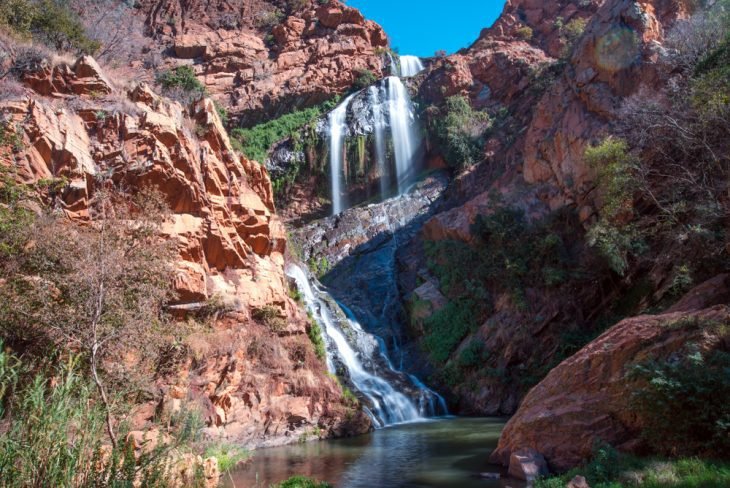The Definitive Guide for Johannesburg North Attractions
The Definitive Guide for Johannesburg North Attractions
Blog Article
How Johannesburg North Attractions can Save You Time, Stress, and Money.
Table of ContentsThe Buzz on Johannesburg North AttractionsJohannesburg North Attractions - An OverviewSome Ideas on Johannesburg North Attractions You Need To KnowHow Johannesburg North Attractions can Save You Time, Stress, and Money.The Only Guide to Johannesburg North AttractionsSome Known Incorrect Statements About Johannesburg North Attractions Johannesburg North Attractions Things To Know Before You Get This
You ought to maintain security in mind and visitors must remain sharp at all times when in strange environments. Speak with the citizens when you remain in town to learn about the location you are remaining in. Johannesburg North attractions. When on the street (this does not put on shopping malls and other safe settings) ideal general recommendations is to attempt your best to look like a local and to prevent showing any kind of form of wealth
Johannesburg North Attractions Things To Know Before You Buy
Professor Revil Mason O. J. (Thomson, 1946) checked out the Witwatersrand's pre-colonial history. His archaeological job blew up the 'em pty land' misconception, according to which the area was without human habitation before the arrival of European inhabitants. In his magazines Prehistory of the Transvaal: A Document of Human Task (1962) and Beginnings of Black People of Johannesburg and the Southern Western Central Transvaal AD 3501880 (1986 ), Professor Mason showed the extent of social and financial growth in the area before Europeans set foot here.

The Facts About Johannesburg North Attractions Revealed
In 1878, David Wardrop discovered gold in quartz blood vessels at Zwartkop, north of Krugersdorp. In 1881, Stephanus Minnaar came across gold on the farm Kromdraai, near the Cradle of Humankind.
In March 1886, a protrusion (quickly to be called the Key Coral reef) was discovered, fairly fortunately, on Gerhardus Oosthuizen's farm Langlaagte. Some state that the Lancastrian coal miner George Walker found this reef. Another itinerant English miner, George Harrison (that had actually formerly operated in Australian mines) acquired a prospecting permit in respect of Langlaagte in Might 1886.
He decided to carry on in a pursuit for greener fields, and disposed of his Langlaagte case for the handsome sum of 10. Alas: under lay the richest goldfield ever before found. The exploration of this abundant auriferous reef prompted a gold rush that signified the end of agrarian serenity in the southern Transvaal.
It would certainly, within 6 years, end up being the largest town in southerly Africa. Within a decade, it would make the Z. A. R. till after that an anarchical and bankrupt little state the wealthiest nation in Africa. By the millenium, the Z. A. R. was to exceed Russia, Australia and the United States of America to come to be the globe's leading gold producer, creating greater than a quarter of linked here the world's gold.
Not known Facts About Johannesburg North Attractions
It was understood as Ferreira's Camp, named after Colonel Ignatius Ferreira. He was a Boer adventurer upon whom the British authorities had presented the status of Friend of the Most Identified Order of St Michael and St George (entitling him to the post-nominal letters C. M. G.) in gratitude for his function in the battle that had deposed the Pedi king Sekhukhune in 1879.
Two various other camps were developed: Meyer's Camp on the ranch Doornfontein, and Paarl Camp. The latter was nicknamed Afrikander Camp; many people from the Cape Nest resolved there.

Things about Johannesburg North Attractions
This name gained money by word of mouth, such that the State Assistant verified the name to the Mining Commissioner on 9 October 1886. Stands in the town were auctioned on 8 December 1886. While some stands were cost 10, others were torn down for as little as sixpence.
2 years later on, these erven were to change hands for as long as 750 each. The tented camps dwindled as a dorp of corrugated iron buildings established and increased north of the mines located along the Main Coral Reef Roadway. Areas such as Jeppe's Town (where working-class immigrants erected their residences) and Doornfontein (where the upscale brand-new 'Randlords' started to construct their extravagant homes) were soon contributed to the ever-expanding map of the community.
See This Report about Johannesburg North Attractions
Apart from the street names, there were no indications of Johannesburg being located in a Dutch-speaking nation., virtually every person spoke English and also the Government slaves dealt with one in English, unless they were first addressed in the Taal (or Reduced Dutch)'.
Britain had a rate of interest in guaranteeing optimal problems for gold production on the Witwatersrand, and that the gold was like this exported to London instead than Berlin a crucial rendered all the extra clamant by the Z. A. R.'s boosting toenadering with Germany. Mine owners got on an accident course with Head of state Kruger, whose plan of monopolistic concessions (often approved to his cronies) avoided mining firms from obtaining supplies of materials (specifically dynamite) and labour by themselves, less expensive terms
Some Ideas on Johannesburg North Attractions You Should Know
In 1890, the Volksraad had restricted the franchise business to white males that had actually resided in the Z. A. R. for fourteen years or longer, therefore disqualifying many of the immigrants (that took place to be the major contributors to the fiscus). Nonetheless, agitation for the vote was a simple pretense for advertising a various schedule; many uitlanders concerned themselves as short-lived site visitors and had no intent of continuing to be in the Z.
Report this page